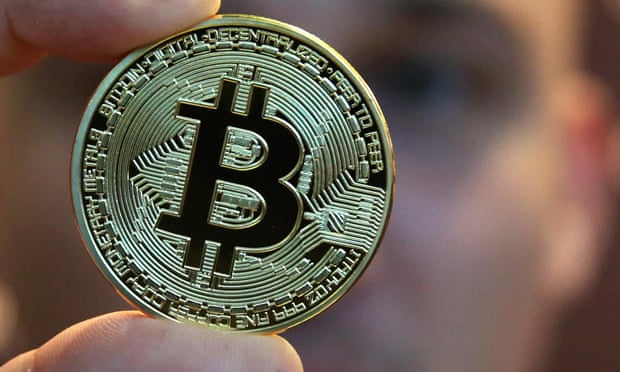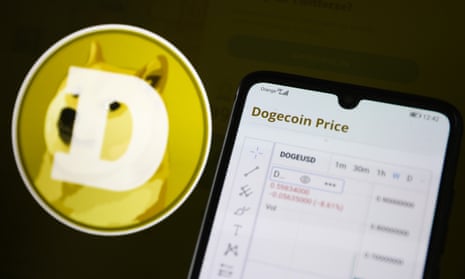A senior manager at Goldman Sachs in London has quit the US investment bank after making millions from investing in Dogecoin, the joke crypto asset which has risen by more than 1,000% in value this year.
City sources said Aziz McMahon, a managing director and head of emerging market sales, had resigned from the bank after making money from investing in the digital currency based on the Doge internet meme.
Backed by famous supporters including the Tesla founder, Elon Musk, the rapper Snoop Dogg and the Kiss bassist Gene Simmons, the digital asset similar to bitcoin has soared in value over recent months.
Based on an internet meme – a humorous online phrase or photo, on this occasion a dog called Doge – the cryptocurrency rose above $0.72 (£0.51) against the dollar last week in anticipation of Musk’s appearance on the hit US TV show Saturday Night Live.
Q&AWhat is cryptocurrency?
Show

Cryptocurrencies are an alternative way of making payments to cash or credit cards. The technology behind it allows the ‘money’ to be sent directly to others without it having to pass through the banking system. For that reason they are outside the control of governments and are unregulated by financial watchdogs – and transactions can be made in a way that keeps you reasonably pseudonymous.
If you own a crypto-asset you control a secret digital key that you can use to prove to anyone on the network that a certain amount of that asset is yours. If you spend it, you tell the entire network that you have transferred ownership of it, and use the same key to prove that you are telling the truth. Over time, the history of all those transactions becomes a lasting record of who owns what: that record is called the blockchain.
Bitcoin was one of the first and biggest cryptocurrencies and has been on a wild ride since its creation in 2009, sometimes surging in value as investors have piled in – and recently crashing back down.
Sceptics warn that the lack of central control make crypto-assets ideal for criminals and terrorists, while libertarian monetarists enjoy the idea of a currency with no inflation and no central bank.
The whole concept of cryptocurrencies has been criticised for its ecological impact, with "mining" for new coins requiring vast energy reserves and the associated carbon footprint of the whole system.
Richard Partington and Martin Belam
It has plunged by more than 30% this week since Musk’s appearance to about $0.50, according to Coindesk. However, it is still up by more than 1,000% from the start of 2021.
Little is known about how much money McMahon made exactly from betting on Dogecoin, after his departure was first reported by the website efinancialcareers. The banker, who has worked for Goldman Sachs for 14 years, did not respond to requests for comment. However, sources said they believed it was a substantial sum and that he had since left Goldman Sachs.
It is believed Aziz made the money investing on his own personal account and was not involved in trading cryptocurrencies for Goldman Sachs.
Created in 2013 by two software engineers from IBM and Adobe, the Dogecoin digital currency started as a joke parodying bitcoin. It has however rocketed in value amid a wave of speculative investment in crypto assets, fuelled by a buzz online and an aim to perpetuate the joke by pumping up its value.
Some early buyers of the digital currency are believed to have amassed small fortunes as the value of Dogecoin soars, including one anonymous owner with a stake thought to be worth more than $2bn.
It also comes amid growing interest in digital currencies from investment banks and large money managers. Goldman Sachs opened a bitcoin trading desk last week, in a move reversing a 2018 decision to stay out of the market.
Some investors believe crypto assets could offer protection against inflation, fearing the value of fiat currencies – such as the pound, dollar and euro – could be eroded as global economic growth accelerates this year as the Covid-19 pandemic recedes.
However others warn prices are only sustained by speculative buyers.
Andrew Bailey, the governor of the Bank of England said last week that investors risked losing all of their money.
“They have no intrinsic value. That doesn’t mean to say people don’t put value on them, because they can have extrinsic value. But they have no intrinsic value,” he said.
“I’m going to say this very bluntly again. Buy them only if you’re prepared to lose all your money.”
